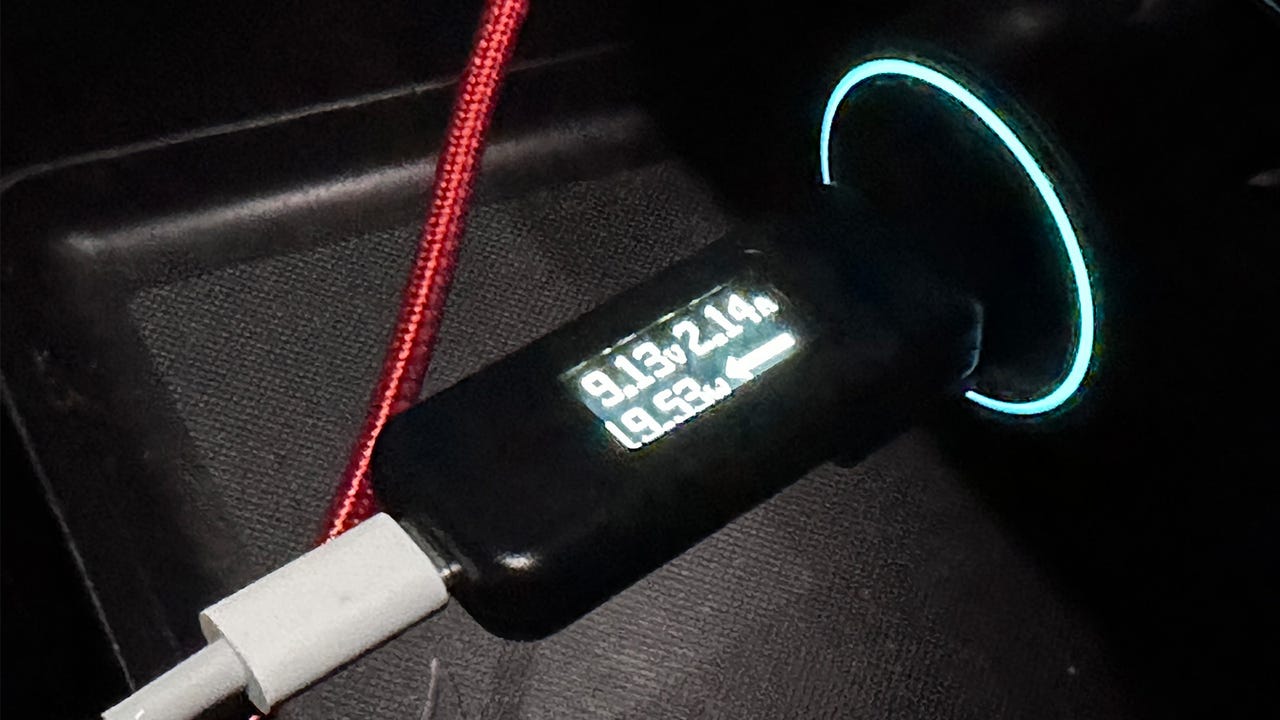
































Real-world testing of an in-car charger.
Adrian Kingsley-Hughes/A few months ago, a reader pointed me to a Readers Digest article that suggested we stop charging our smartphones using in-car chargers because these can "damage your phone's charge port or the motherboard itself."
This was interesting to me because I've tried, tested, reviewed, and recommended a lot of in-car chargers over the years-- and I use car chargers all the time.
Am I destroying my devices by charging them in the car?
Also: This gadget is the USB-C accessory you didn't know you needed
First, some background. During the past year alone I've tested approximately a dozen in-car chargers. This is a bit of a decline compared to previous years, probably because most new cars now come with built-in USB ports.
Those in-car chargers I tested were put through a barrage of tests -- both in cars and also by powering them using a bench power supply. (The bench power supply allows me to dramatically vary the voltages the charger has to endure.) I subjected them to various loads, including real devices and a number of test loads . I use a number of USB meters and testers to log the power outputs.
Also, since I spend a lot of time in rental cars, I get the opportunity to test these chargers in a variety of vehicles.
On top of that, I monitor how warm -- or hot -- the in-car charger gets byusing thermal cameras .
Bottom line: I've testeda lotof in-car chargers, even very cheap and nasty ones. These things get put through their paces; on average, the testing process of a single in-car charger takes a minimum of two hours.
So, what have I found?
I have not rejected a single charger because it put out the incorrect voltage or too much power.
Converting a car's power supply into power that a smartphone or other mobile device can use requires very simple circuitry, the sort you find in power banks. It's hard to mess that up! Also, the battery management system built into modern devices is so good that if your smartphone detects abnormal power, it will most likely shut off charging. This is, in fact, something that I test, and I find that modern smartphones, tablets, power banks, and even big power stations are amazingly resistant to damage from under or over voltage.
Also: What are the best wireless car chargers and which can fast-charge a phone?
Sure, there might be really scabby in-car chargers out there that do something crazy, but I've not come across them. (In contrast, I've come across plenty of wall chargers that do really awful things.)
This isn't to say that I don't reject -- and refuse to feature -- a lot of the in-car chargers I test. I do! But most of these fail either because of poor construction (they break or burst open easily), or because they become excessively hot in use. (To pass thermal testing, devices need to operate within the safe "no injury" temperature range, and not exceed 60
 Hot Tags :
Our process
Home & Office
Hot Tags :
Our process
Home & Office